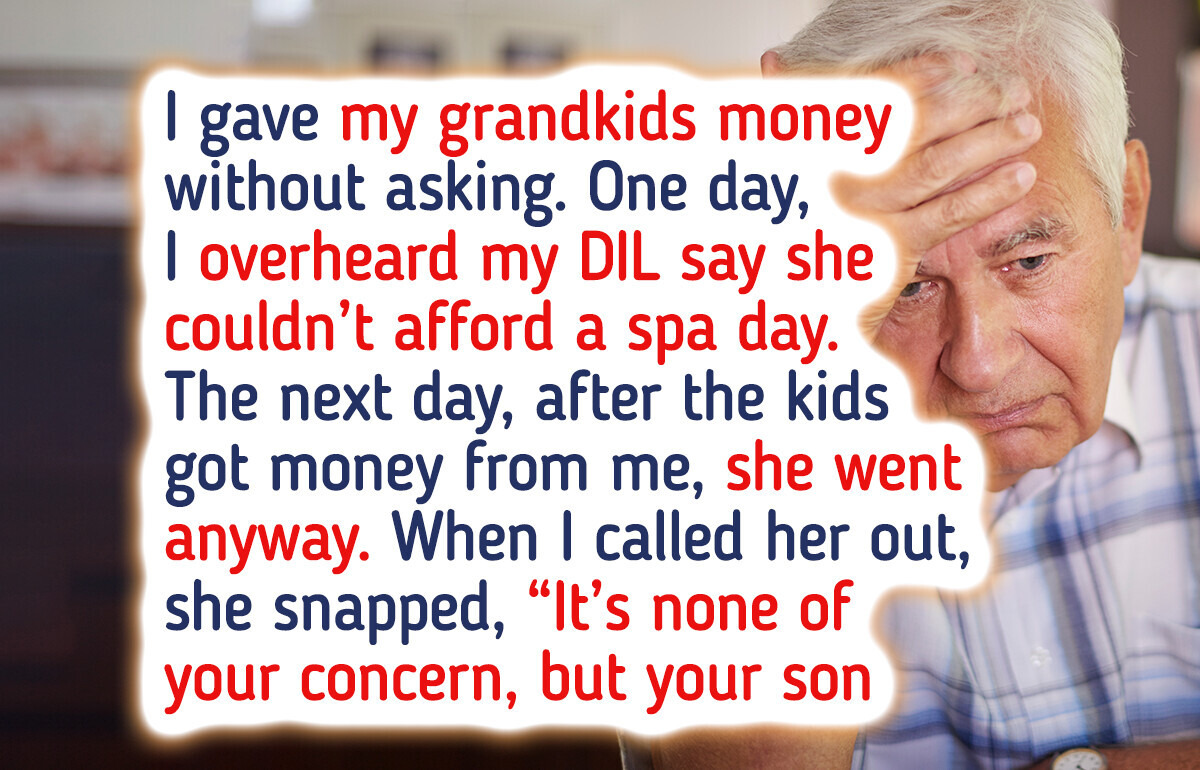My MIL Got Caught Snooping in My Closet — I Couldn’t Believe My Fiancé’s Reaction


Our reader Oliver is torn between his love for his grandchildren and the suspicion that his daughter-in-law may be taking advantage of him. Should he stop giving money or keep supporting them for his son’s sake? How far should parents get involved in their adult children’s lives? Read his story to find out what happens next.
Hello, Now I’ve Seen Everything,
I’m Oliver, in my 60s, and I have two wonderful grandkids whom I love deeply. Whenever they came to me asking for money for their latest “needs,” I gave it — no questions asked.
One evening, I overheard my daughter-in-law talking — probably to a friend — saying she couldn’t afford a spa day. But the very next day, after the kids had received money from me, she went anyway. That seemed off, so I decided to confront her.
I didn’t really expect to hear, “Really, it’s none of your concern. It’d be better if you didn’t try to eavesdrop on me but taught your son how to earn money instead. It’s he who never gives us enough. Sometimes I have to save for tough times, and the kids just help me get by. And sometimes I need to relax. So you want to discuss it?”
To be honest, she really shocked me. I told her it would be better if we talked openly next time, then I walked away.
Part of me feels embarrassed for my son, knowing he can’t fully provide for his family. Now, I’m unsure whether to tell him that his wife has been manipulating me or stay silent and keep helping them for his sake.
Thanks for sharing your story, Oliver! It’s clear how much you love your grandkids, and wanting to support them is completely natural. But the situation with your daughter-in-law does sound complicated. Let’s take a closer look to help you figure out the best way forward.
You’ve been generous in helping your grandkids, but it sounds like the situation is becoming more complicated. Before deciding whether to continue or change your financial support, consider these questions:
You don’t have to stop supporting them, but it’s important to know if your contributions are meeting real needs or simply funding a lifestyle you don’t agree with — like your daughter-in-law’s spa day.
Possible options:
This comes down to what you’re comfortable with and how involved you want to be in their finances. Talk to your son if it might help, but don’t feel pressured to fix everything. Your role has changed, and it’s okay to give them space while still supporting them in other ways.
From a young age, we learn that our parents sacrificed for us and giving back is expected. For many, this feels right — especially when financially stable. But what if giving starts to feel like an obligation, not love? One man believed he was honoring his parents — until a moment with his mother changed everything.











